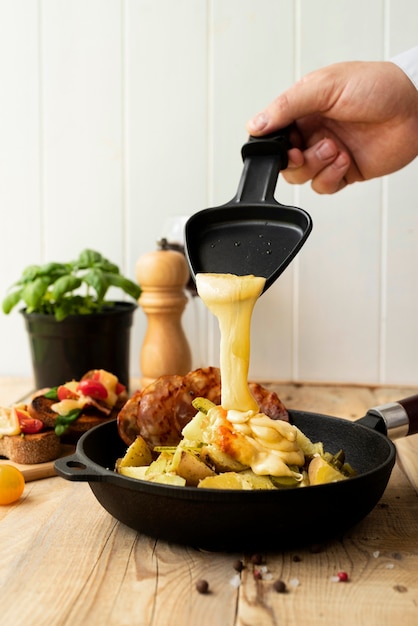
Cooking oils play a key role in making various dishes, whether you’re frying, deep-frying, or sautéing. With so many types of oils available, it’s easy to get confused about their health benefits and potential drawbacks.
Unlike butter, other fats and oils don’t contain protein or carbohydrates. When talking about the health effects of cooking oils, it mainly comes down to the types of fats they contain and the plants they come from. Oils extracted from vegetables, seeds, and nuts provide fatty acids that are essential for optimal brain and nerve function.
Most vegetable oils go through refining processes that often include preservatives, which can lower the oil’s quality and lead to the formation of free radicals.
In this discussion, we’ll look at five common cooking oils, going through the pros and cons of each, particularly in terms of health effects.
**1. Olive Oil**
Olive oil is hugely popular and not just in the kitchen. Known as a superfood, it’s great for heart health but isn’t suitable for every cooking scenario.
**2. Canola Oil**
Extracted from rapeseeds, canola oil is a common choice for medium-heat frying in many kitchens.
**3. Vegetable Oil**
Usually a mix of various oils like corn, palm, soybean, and sunflower, vegetable oil is versatile for many cooking needs.
**4. Coconut Oil**
Packed with flavor, coconut oil is often considered healthy. However, there’s some debate due to its high saturated fat content.
**5. Corn Oil**
With a golden yellow color, corn oil is taken from maize kernels and is good for baking and medium-heat frying.
Now, let’s cover some general pros and cons of using cooking oil, including environmental impacts.
One major plus is that used oil can be recycled, which benefits both you and the environment. On the downside, pouring used cooking oil down the sink can clog your pipes. Many people dump used oil down the drain thinking it’s similar to waste water, but this is a mistake. Oil and water don’t mix, and oil can solidify at cooler temperatures, which causes blockages.
Clogged pipes can lead to severe problems like backflow into your home, flooding areas like the basement. This issue could be mitigated with backflow prevention valves, but not all valves are created equal, and some may not withstand tough conditions. It’s crucial for local communities to source reliable backflow prevention valves.
Understanding the pros and cons of different cooking oils helps you make better choices for health and safety. Finally, always remember to avoid draining used cooking oil down the sink to prevent clogging and potential water contamination issues in your home.